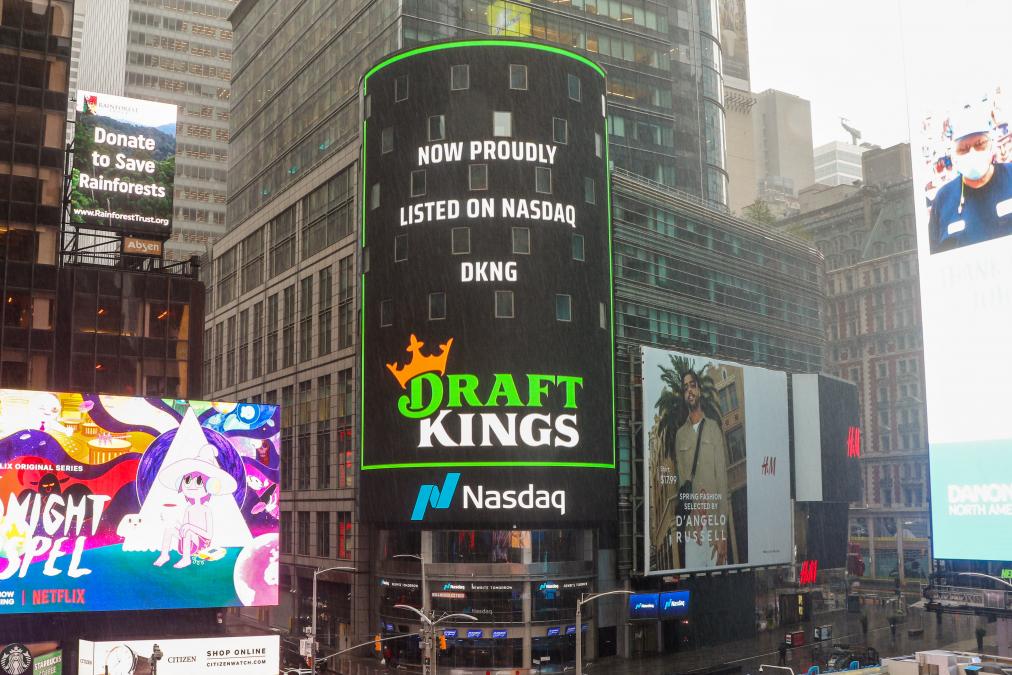New York Gaming Commission to Consider Restrictions on Sports Betting Ads
Posted on: February 27, 2023, 06:01h.
Last updated on: February 27, 2023, 11:16h.
New York’s gaming regulatory body may change its rules regarding online sports betting promotions and advertisements, and those could be approved as soon as Monday.

Many of the 18 topics listed in a memo sent last week by Edmund Burns, general counsel for the New York State Gaming Commission (NYSGC), to commissioners deal with limiting exposure to individuals not old enough to place wagers through a licensed operator in the state. New York’s minimum age to bet on sports is 21.
The proposed rule changes to ensure marketing materials aren’t designed to influence underage individuals include prohibiting the use of cartoon characters or featuring “entertainers or music that appeal primarily to” that age group. Another rule would ban sports betting advertisements in higher education settings, including college newspapers, broadcast outlets, and campuses.
Sports betting operators may also be prohibited from describing or insinuating the activity “as a rite of passage” to becoming an adult.
Online sports betting launched in New York in January 2022, and the state quickly became the top US market based on handle and gross gaming revenue. The operators approved to offer online wagering in New York are Bally Bet, BetMGM, Bet Rivers, Caesars Sportsbook, DraftKings, FanDuel, PointsBet, Resorts World Bet, and WynnBET.
Commissioners are scheduled to meet Monday at 1 pm ET to discuss the proposed rules and other gaming matters. The meeting will be available online.
New York’s Proposed Rules Inspired by Other States
The commission’s consideration comes as sports betting operators face accusations of using predatory tactics to land new customers. A New York congressman has proposed legislation to enact a federal ban on sportsbook commercials and ads.
In the memo, Burns noted the NYSGC got ideas for the new rules from several sources.
Elements of the proposal are derived from the American Gaming Association’s Responsible Marketing Code for Sports Wagering, which is a private trade association’s voluntary self-regulation code, and sports wagering advertising regulations from other states, such as Arizona, Massachusetts, Ohio, and Virginia,” he wrote.
Ohio rules ban advertising and promoting sports betting on college campuses, and earlier this month, that state’s Casino Control Commission approved a $250K fine against Penn Sports Interactive after its Barstool Sportsbook was promoted during a Barstool Sports College Football Show broadcasting from the University of Toledo.
A rule banning advertising and marketing efforts on college campuses was of particular concern to NYSGC Chair Brian O’Dwyer, Burns said in the memo.
A proposed rule modeled after a regulation established in Massachusetts would not allow endorsements for sports betting sites by anyone under the age of 21. Like the Massachusetts guideline, it does carve out an exception for professional athletes under that age.
Responsible Gambling Rules Also Recommended
Other proposed New York sports betting regulations would seek to promote responsible gambling practices.
Operators would be banned from using words or phrases “free,” “cost-free,” or “free of risk” in any promotion if the bettor must put up their own money first or suffer a loss. That, too, is similar to a rule in Ohio.
Another rule would require operators to state the “specific dollar amount” a bettor would need to wager in order to receive a free item or bonus. That amount must also be published in the same font and type as the amount of the credit or the value of the gift.
Regarding direct marketing, a proposed rule would require sports betting operators to “clearly and conspicuously” offer ways recipients can opt out of receiving similar materials in the future. Ads sent by email would need to include either an email address or a website link where recipients can submit their request to no longer receive such materials. Other direct marketing materials must have at least an email address, a website address, a physical mailing address, or a phone number in which to submit their request.
The proposed rule requests operators process the opt-out request “as soon as practicable” and adds that would need to be handled within 15 days of the date of the request.
Sportsbooks also would be responsible for the “content and conduct” of all promotional materials and branding. That would include ads produced or published by an affiliate partnering with the operator.
Related News Articles
Ohio Sports Betting: Commission Wants Ads Checked for Responsible Gaming
Iowa Takes Aim at Account-Sharing in Wake of Student Betting Scandals
Most Popular
Las Vegas Overstated F1 Race’s Vegas Impact — Report
Vegas Strip Clubs Wrestle in Court Over Animal Names
Mega Millions Reportedly Mulling Substantial Ticket Price Increase
Las Vegas Strip Stabbing Near The Strat Leaves One Man Dead
Most Commented
-
End of the Line for Las Vegas Monorail
— April 5, 2024 — 90 Comments -
Mega Millions Reportedly Mulling Substantial Ticket Price Increase
— April 16, 2024 — 6 Comments -
Long Island Casino Opponents Love New York Licensing Delays
— March 27, 2024 — 5 Comments -
Smart Video Poker Players Hamper Casino Profits, Says Study
— March 21, 2024 — 4 Comments
















No comments yet